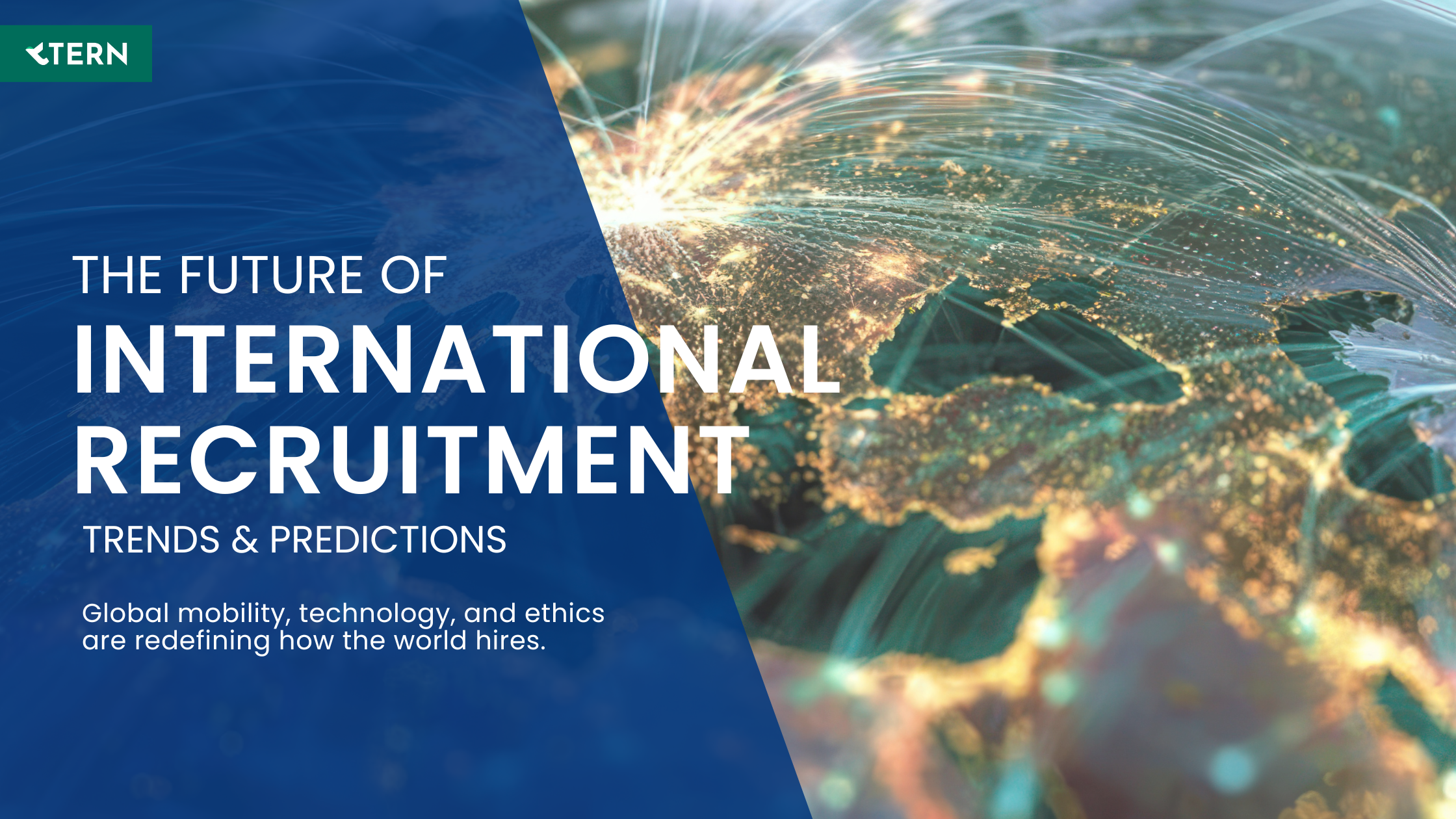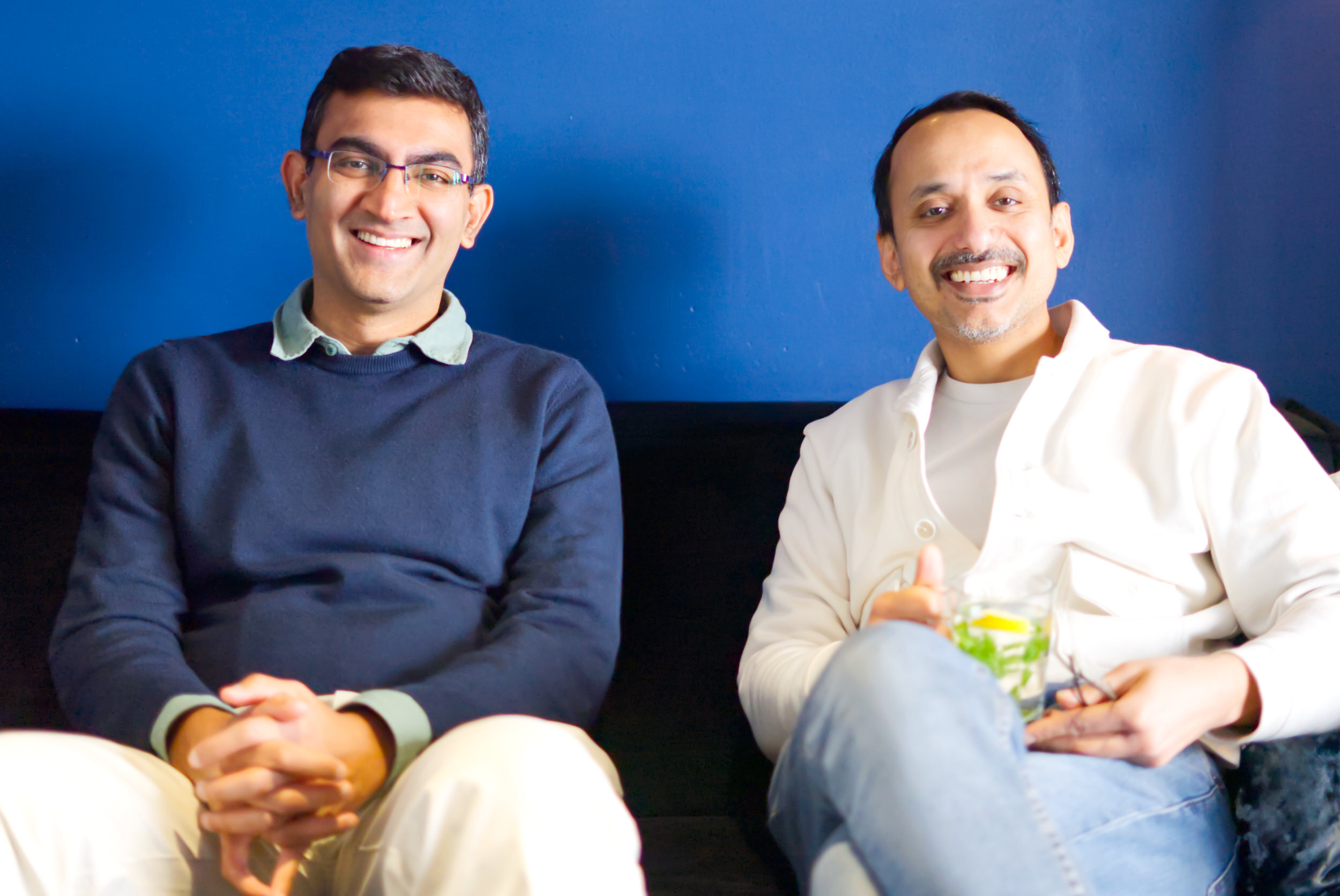TERN
December 24, 2024
•
5 mins
Why is Ethical Recruitment the Future of Healthcare?
.png)
Healthcare in the 21st century is witnessing an unprecedented shift with the rampant adoption of new age technologies, especially artificial intelligence. Be it diagnostics, predictive analysis, decision-making, personalisation, or recruitment, technology has penetrated every aspect of healthcare. With this transformation, a crucial reality is emerging: the success of modern medicine depends not only on cutting-edge technology but also on the people behind it. Artificial intelligence and automation continue to reshape medical practices, and healthcare leaders recognise that ethical recruitment forms the foundation of quality patient care. Ethical recruitment alongside AI in healthcare will help in finding and retaining the right people the right way, which essentially has become the crux of recruitment in the post-pandemic world we live in.
The Human Touch in a Digital Age

AI in healthcare has been at the centre of the conversation these past couple of years, and the numbers tell a compelling story. The global AI healthcare market will reach $188 billion by 2030, highlighting a digital transformation. Future trends in healthcare technology, from automated diagnostics to robotic surgeries, signal a profound shift in medical care delivery. And yet, it’s the people behind the technology that make the critical decisions, as technology alone cannot, making it crucial to have the right professionals to implement AI successfully on the ground.
AI is evolving rapidly and is becoming increasingly accurate. But it’s the need for empathy that is essential to us humans. “There’s a need for compassion in communication that AI is unable to contribute,” says David Drenove, Director of Doctoral Programs and Professor of Strategy at Northwestern University's Kellogg School of Management. This balance between technological prowess and human compassion is where ethical recruitment becomes not just important but crucial.
Rethinking How We Build Healthcare Teams
With the rapid adoption of AI in the medical and pharmaceutical sectors, the future of healthcare demands a complete overhaul of traditional hiring practices. Healthcare organisations are discovering that technical skills alone don’t guarantee success. The best outcomes come from teams built through ethical recruitment—a process that considers not just qualifications but cultural fit, emotional intelligence, and commitment to patient care.
Some key areas healthcare organisations that prioritise ethical recruitment focus on are:
- Transparent hiring process: Ensuring candidates understand the hiring process, the job expectations, and how decision-making happens.
- Fair compensation structures: Compensation structures that reflect the true value of healthcare workers and ensure equality when it comes to pay across the board.
- Commitment to diversity and inclusion: Hiring that reflects the diversity of the patient population they serve.
- Ongoing professional development opportunities: Onboarding processes that are structured and availability of opportunities that help employees grow and succeed.
AI and Human Intelligence: A Collaborative Future

There is growing fear that AI will take over jobs across industries and sectors. The reality is quite different, especially so in the healthcare sector. The future of the healthcare industry isn’t simply about replacing humans with robots and algorithms, as people tend to anticipate. It’s about the best of both worlds: combining human expertise and AI efficiency to provide better healthcare.
AI heavily influences recruitment today. Be it screening candidates, matching skills to job requirements, and even reducing unconscious bias in hiring processes, AI is being used everywhere in recruitment for healthcare organisations. AI can assist in ensuring a fairer, more ethical approach to recruitment by helping recruiters sift through large pools of applicants more efficiently, reducing the chances of missing out on talented candidates who might not fit traditional moulds.
No way does this mean that the human touch is disappearing. AI essentially can streamline processes for everyone, from recruiters to doctors to healthcare professionals in their respective domains. This will allow them to focus on what matters—providing quality patient care. AI is here to help organisations:
- Screen candidates: AI systems through machine learning (ML) and Natural Language Processing (NLP) can objectively analyse resumes, scouring through them for nuanced information and flagging potential fits, helping ensure that selection processes are unbiased.
- Match skills to job requirements: As these AI systems continue to function and evolve, they learn and get better at matching people to roles where they help organisations by shortlisting candidates that can excel in their domain and the candidates by matching them to roles that suit their specifications, making it more likely for them to accept an offer in case of selection.
- Improve the experience for candidates: By learning more about that candidate, their needs, and their profile, automation can help eliminate irrelevant job listings, making the process easier and less stressful for candidates, thus enhancing the overall experience.
Looking Beyond Technology: Building a Better Team
The future of healthcare by 2025 reveals striking contrasts: while AI in India's healthcare market will reach $1.6 billion with healthcare spending at 2.5% of GDP, developed nations like Germany already invested 12% of GDP in healthcare by 2021. Globally, the AI industry is projected to reach $500 billion by 2032, with a remarkable CAGR of 42%, demonstrating the transformative impact of AI in healthcare.
As we race towards the future, healthcare organisations must rethink how they build teams. While AI and technology dominate headlines, history has taught us one thing—true success lies in investing in people. The focus needs to be not only on just technical skills but also on the softer, more human skills that make great healthcare teams.
When an organisation takes the time to recruit the right people, the entire system benefits. The long-term impact of this on patient care is one of the benefits of ethical recruitment and is often overlooked. Teams built through ethical recruitment practices experience:
- Better teamwork and collaboration: People who feel valued and are culturally aligned generally tend to work better together.
- Improved communication with patients: Emotionally intelligent and empathetic healthcare professionals are likely to better connect and communicate with patients and their families, leading to higher patient satisfaction.
- Lower attrition rates: Employees who feel they were recruited ethically are more likely to stay with an organisation.
- Higher adoption of innovation: Ethically recruited teams tend to be more adaptable, embracing new technologies and innovations more readily.
Future Trends in Healthcare Recruitment

Future healthcare trends that are currently emerging, like the adoption of AI, will shape the way healthcare organisations recruit:
- AI-driven recruitment: AI tools will help organisations screen candidates more effectively and reduce biases in the hiring process, making it more efficient and effective.
- Emotional intelligence will matter more: In a world where day-to-day interactions are increasingly becoming digital, human qualities like empathy and communication will be highly valued.
- Healthcare roles will continue to evolve: As technology reshapes healthcare, traditional roles are bound to change, requiring more interdisciplinary collaboration in healthcare setups.
- Continuous professional development: As new technologies continue to emerge with the constantly rising implementation of AI, healthcare professionals will need to keep up and adapt with continuous learning to stay ahead.
- Focus on diversity and inclusion: Ethical recruitment practices will continue to push for more diverse teams as staffing gaps are on the rise in developed nations.
The Long-Term Benefits of Ethical Recruitment
Ethical recruitment done right leads to stronger teams that have the agility to adapt to newer, cutting-edge technologies in healthcare systems. Healthcare organisations can ensure that they’re prepared for oncoming challenges, no matter how technology evolves around them, by focusing on the human element.
Healthcare after all is about people—patients, doctors, nurses, support staff—and how we make their lives better. Ethical recruitment ensures that as technology advances, we never lose sight of this simple truth.
Making Ethical Recruitment Work
A successful ethical recruitment program typically includes:
- Comprehensive candidate assessment: Beyond the obvious technical qualification, a candidate is evaluated on emotional intelligence, interpersonal skills, and problem-solving ability.
- Cultural fit evaluation: A candidate's value system and work style preference are assessed against the organisation’s culture and mission.
- Career development paths: Growth opportunities and avenues to progress are established, which helps healthcare professionals envision a long-term future with the organisation.
- Performance feedback: Feedback systems are bi-directional and focus on the development of both technical and soft skills.
- Mentorship programs: Pairing recruits with experienced professionals to provide support, guidance, and knowledge of the inner workings of the organisation’s operations and cultures.
Measuring Success in Ethical Recruitment
Does ethical recruitment work? How can it be measured? Healthcare organisations that have implemented these practices often track metrics like:
- Patient satisfaction scores: Better staffing quality results in better communication with patients and their families positively affecting the overall experience, which will yield higher satisfaction scores.
- Staff retention rates: A happy employee who is treated fairly tends to stick around longer, indicating successful ethical recruitment and a positive workplace culture.
- Team performance indicators: Teams that are stronger and more cohesive perform better, leading to improved patient outcomes, and evaluating these outcomes measures collaborative success.
- Innovation adoption rates: The right set of professionals are generally better equipped to quickly adapt to changing standards and technology.
- Community engagement levels: Outreach programs, health education initiatives, and community feedback help assess how effectively teams are able to connect and serve the local community.
- Professional development participation: Enrolment in specialised training and skill development programs are effective indicators of long-term commitment to excellence and growth amidst the staff.
Conclusion: Ethics and Technology go Hand in Hand
AI and healthcare are becoming increasingly intertwined in shaping global medical practices. As this integration deepens, ethical recruitment becomes essential to maintain the human element in patient care. While technology advances, healthcare professionals remain the cornerstone of quality patient care, making ethical recruitment practices essential to success.
The future of the healthcare industry presents both unprecedented opportunities and complexities. Success hinges on building diverse, emotionally intelligent, and adaptable teams through ethical recruitment practices. This approach isn't just a trend—it's the foundation for creating a healthcare system that's humane, effective, and technologically advanced, ultimately making quality care accessible to all.
At TERN, we truly believe that technology exists to make lives better. We’re a full-stack platform that leverages technology and AI to help professionals find their dream job and organisations find the right talent. Are you ready to experience the future of recruitment? Reach out to us today at +91-7065-100-247 or visit our website and let TERN elevate your talent acquisition strategy to the next level.





.jpg)

